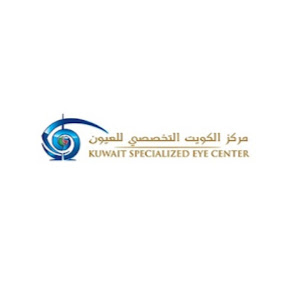
Kuwaiteyecenter
Uploaded on Feb 27, 2024
Category
Health & Medicine
Learn the pros and cons of prescription and non-prescription contact lenses and how to choose the best option for your eyes in Kuwait. #contactlenses #eyecare #kuwait More Info : https://www.kuwaiteyecenter.com/facilities-technology/
Category
Health & Medicine
Prescription vs Non Prescription Contact Lenses Which is Right for You in Kuwait
Prescription
vs
Non-
Prescription
Contact
Lenses:
Which is Right for You in
Kuwait?
Introductio
Prescription contact lenses in
nKuwait
refer to the legitimate
directions of your eye doctor.
Non-prescription contact
lenses, are over-the-counter
(OTC) lenses, meaning that
those are not bought under
your doctor’s instructions.
Before you go and make the
mistake of buying OTC
contact lenses, learn the
difference between these
two:
Regulatory Compliance: In Kuwait, prescription contact lenses are under stricter regulations enforced by the Ministry
of Health. These regulations ensure that prescription contact lenses meet the safety and efficacy standards. Non-
prescription lenses, on the other hand, might not undergo the same level of scrutiny, potentially posing risks to eye
health if used improperly.
Vision Correction Needs: Prescription contact lenses are tailored to address specific vision problems such as myopia,
hyperopia, astigmatism, or presbyopia. Optometrists or ophthalmologists conduct comprehensive eye exams to
determine the correct prescription. Non-prescription lenses, usually used for cosmetic purposes like changing eye
color or enhancing costume appearances, do not provide vision correction and do not address underlying vision
issues.
Professional Guidance: Choosing prescription contact lenses involves professional consultation with an eye care
specialist who can assess your eye health, prescribe the appropriate lenses, and guide you on proper usage, cleaning,
and maintenance. This personalized approach minimizes complications and guarantees comfortable, clear vision.
Non-prescription lenses are typically purchased without professional oversight, increasing the likelihood of misuse
and potential complications like corneal abrasions or infections.
Safety Considerations: Prescription contact lenses are manufactured with materials and designs optimized for safe,
long-term wear. They adhere to strict quality principles to minimize the risk of adverse reactions, especially when
worn for extended periods. Conversely, non-prescription lenses sourced from unverified sources may be made from
inferior materials or lack adequate oxygen permeability, increasing the risk of corneal hypoxia, inflammation, or
infection.
Legal Implications: In Kuwait, selling or distributing non-prescription contact lenses without proper authorization is
illegal. Purchasing such lenses from unauthorized vendors or online marketplaces will expose consumers to
counterfeit or substandard products, with potential legal consequences for both sellers and buyers. Opting for
prescription lenses from licensed practitioners makes sure that you comply with local regulations.
Long-Term Eye Health: Prioritizing prescription contact lenses not only ensures accurate vision correction but also
promotes long-term eye health. Regular check-ups with an eye care professional enable early detection of any
changes in eye health or vision, allowing for timely interventions. Non-prescription lenses can worsen eye conditions
or cause irreversible damage, compromising ocular health in the long run.
In Kuwait, prescription co
ntact lenses
are highly advisable
without a shadow of a
doubt. It is important to
consult a professional eye
doctor in the event that
you start thinking about
going for non-prescription
contact lenses.
Thank
sDo you have any questions?
[email protected]
+ 965
22211000
https://www.kuwaiteyecenter.co
CmR/EDITS: This presentation template
was created by Slidesgo, including
icons by Flaticon, infographics &
images by Freepik

Comments